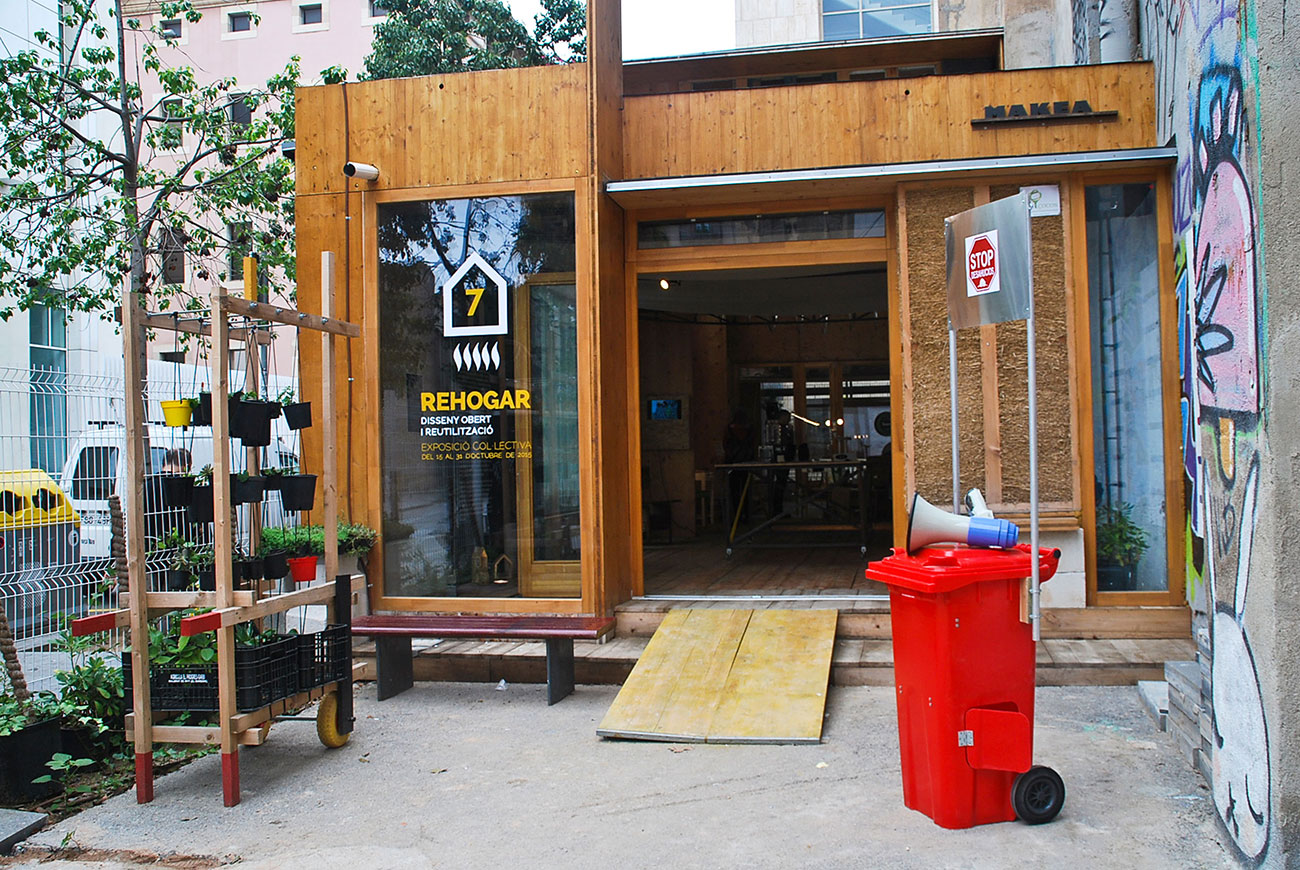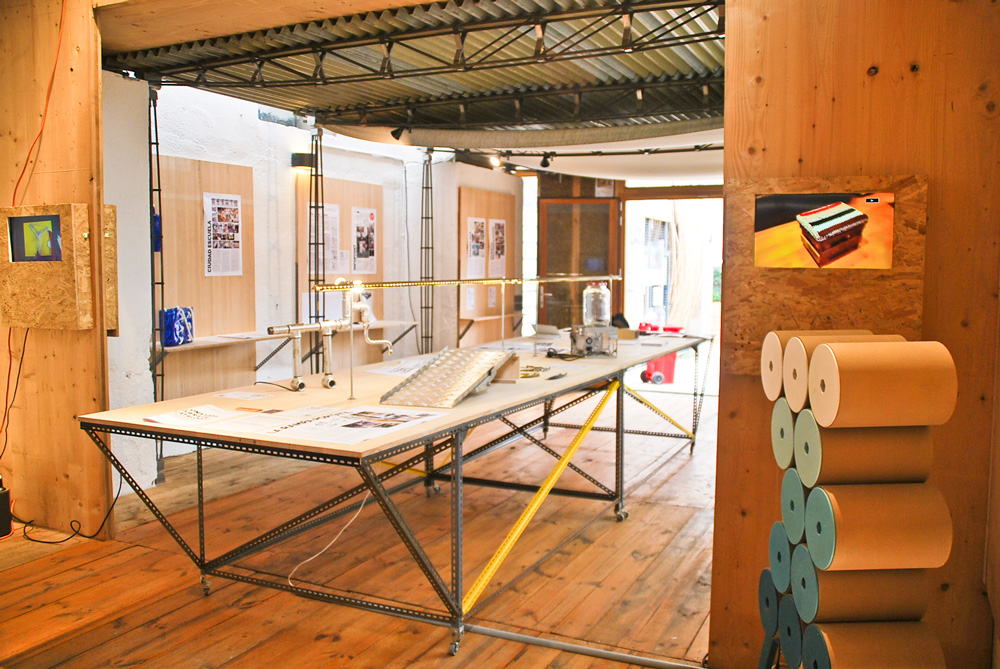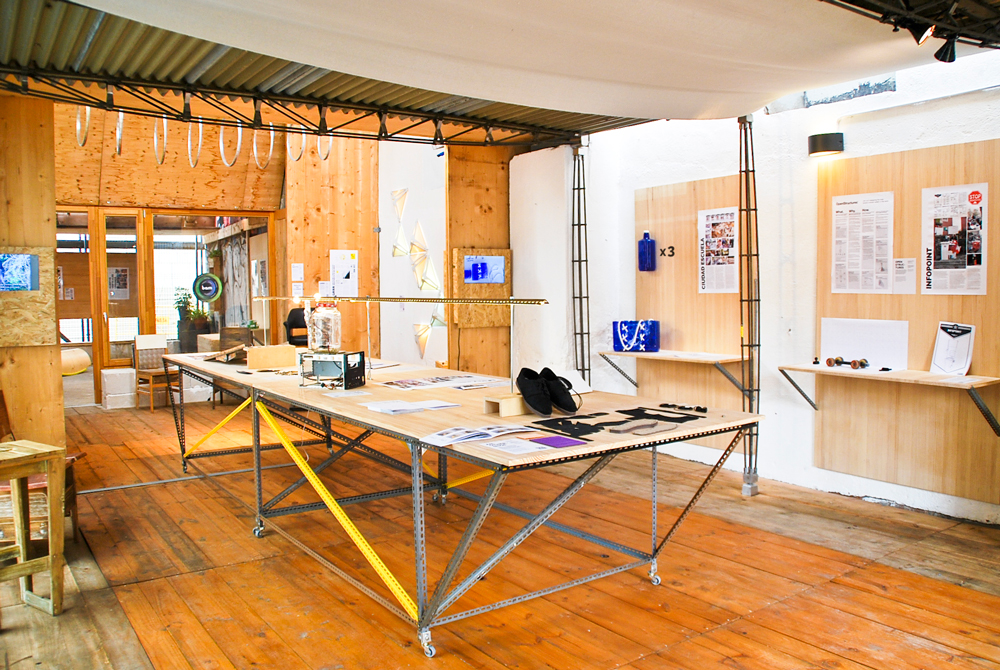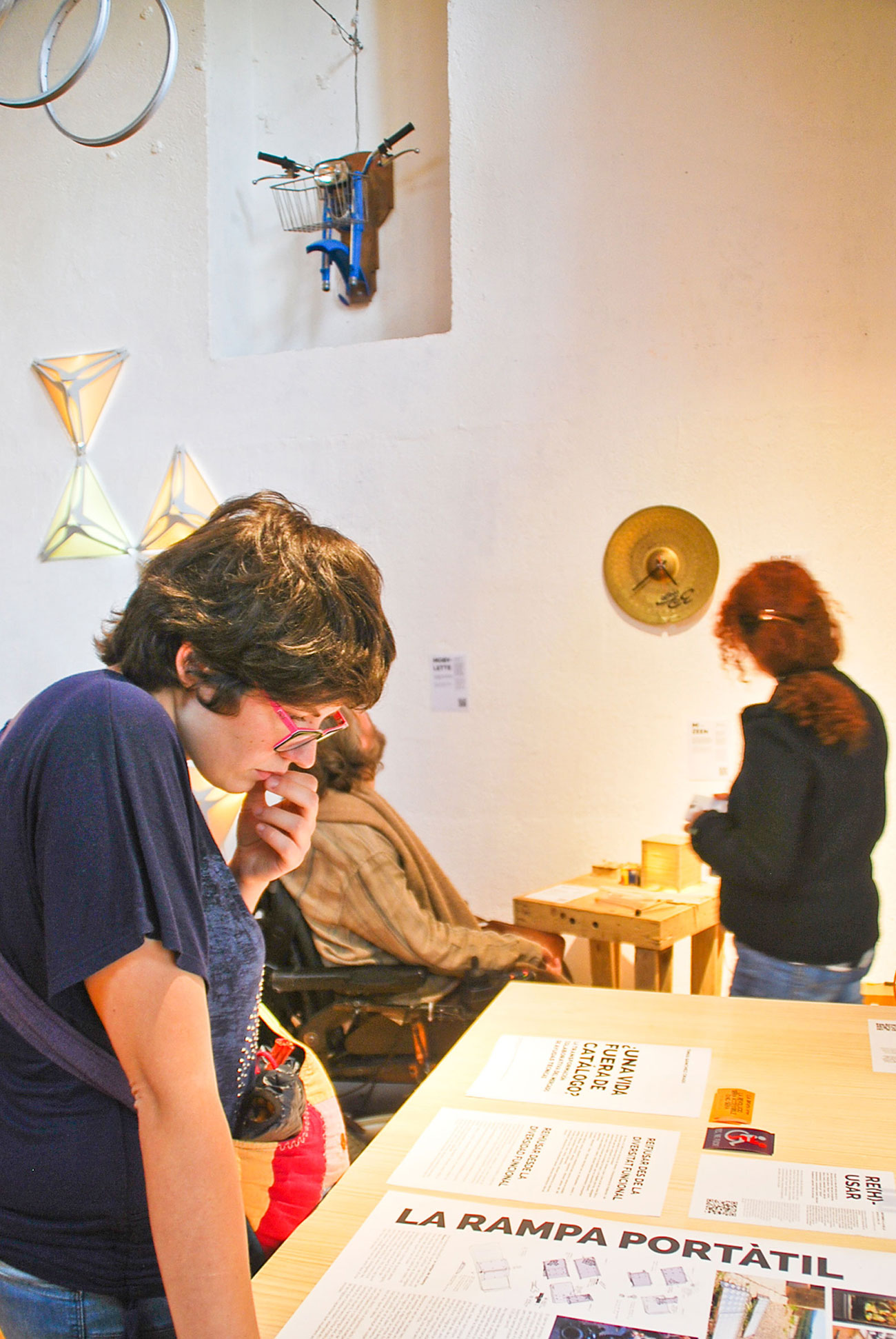
Desde el 3 al 17 de diciembre tendré el grandísimo gusto de poder estar en Montevideo, donde daré un curso y participaré en un laboratorio (esto último junto a Isaac Marrero) en la Maestría en Psicología Social de la Facultad de Psicología de la Universidad de La República, que por intermediación del queridísimo colega y amigo Gonzalo Correa (con quien tenía muchas ganas de poder tramar algo en común desde hace tiempo) ha financiado mi pasaje transatlántico y mi estancia. Agradezco enormemente el esfuerzo económico para hacer realidad el viaje y espero sólo poder compensarlo con las ganas que tengo de aprender de las realidades montevideanas y aportar en la medida de lo posible desde el trabajo que he venido realizando en los últimos años.
El curso tendrá lugar los días 5, 6, 7 y 8 de diciembre por la tarde y lleva por título “Experimentos austeros: Los arreglos del cuidado en crisis” (algo que en algún momento he pensado pudiera convertirse en el borrador de un libro o al menos de un intento de un argumento de amplio espectro–algo que quisiera poder reescribir y co-escribir con mis compas de En torno a la silla–, y agradezco enormemente la oportunidad brindada no sólo de poder presentar y discutir mi trabajo sino de tener un espacio experimental para ensayar el argumento en tan buena compañía).
Dejo por aquí la información detallada del curso.
Resumen
Este curso plantea una aproximación a las transformaciones contemporáneas en el cuidado y el auto-cuidado, prestando especial atención no sólo a sus aspectos sociales (roles de género sexualizados) o vinculados al trabajo corporal, sino a los arreglos e infraestructuras materiales. De forma más concreta, y siguiendo diferentes perspectivas dentro de la antropología de la ciencia y la tecnología, el curso pretende mostrar las democratizaciones tecnocientíficas desarrolladas en años recientes por el Movimiento de Vida Independiente (MVI): una particular forma de activismo encarnado que pone en el centro los soportes corporales, la interdependencia como fundamento para el auto-cuidado y la experiencia de la diversidad corporal. Empleando numerosos casos y el contexto de un estudio etnográfico llevado a cabo en Barcelona desde 2012–uno de los momentos de mayor efervescencia creativa y activista de la España de las medidas de austeridad, en una profunda crisis económica-financiera, institucional-democrática, moral, etc.-, el curso busca abrir un diálogo sobre los modos de teorización y de conceptualización de las infraestructuras vernáculas del cuidado, las formas de conocimiento que movilizan o las sensibilidades que concitan estos activistas del MVI. Y, particularmente, de qué manera sus “experimentos austeros” pudieran estar explorando o poniendo en práctica conceptos y modelos alternativos de bienestar.
Contenido
0) Introducción
– Una aproximación a las transformaciones contemporáneas en los arreglos socio-materiales del cuidado desde un estudio etnográfico en la España en crisis -económica-financiera, institucional-democrática, moral, etc.-, participando activamente en el colectivo En torno a la silla.
– Apunte sobre el método: Conceptualización vernácula y antropología de la ciencia y la tecnología.
– Dos grandes líneas temáticas:
- Cuerpo y formaciones socio-subjetivas fragmentarias y en formación: Una antropología pensada desde los soportes corporales y socio-subjetivos (Do kamo de Leenhardt y la revisión de Pazos, 2008) de la experiencia de la diversidad, lo que permitiría abrir un diálogo sobre las infraestructuras corporales/urbanas, las formas de conocimiento que movilizan y las sensibilidades que concitan.
- El cacharreo y sus arreglos como modo de materialización vernácula del cuidado, aspecto nuclear de esta historia.
1) El cacharreo como radicalización de las infraestructuras del auto-cuidado frente a la institucionalización y el cuidado familiar
– Discusión sobre el cuidado y el auto-cuidado:
- El estado del bienestar español en discusión (1977-2006): el IMSERSO y su intento frágil y tecnocrático por ir más allá del asistencialismo, el familismo y el corporativismo; las leyes sobre discapacidad; la gran reforma de la “ley de dependencia”, el SAAD y el debate institucionalización vs. cuidado en el hogar (e.g. teleasistencia)
- El Movimiento por la vida independiente (MVI) I: Disability Rights Movement y discusiones del concepto de cuidado / auto-cuidado
- El MVI II : La creación del Foro de Vida Independiente y Divertad (FVID) y la diversidad funcional como concepto auto-representacional vernáculo del modelo social de la discapacidad; un foro en internet vs. el asociacionismo corporativista de la discapacidad (grandes asociaciones sectoriales y asociaciones de padres)
- Las Oficinas de Vida Independiente (OVIs) y el asistente personal (AP) como figura de la interdependencia en discusión: el debate feminista de “Cojos y precarias haciendo vidas que importan”
- Tecnología y MVI: entre el derecho a escoger las tecnologías o hacer lobby para su rediseño mediante pagos directos (Lifchez, Ratzka, Wienner, Werner) y la auto-fabricación
- Radicalizaciones del cuidado: De las “comisiones de diversidad funcional” del 15M a Funcionamientos de Medialab-Prado y el surgimiento de En torno a la silla (ETS)
2) El cacharreo como activismo encarnado
– Figuraciones epistémicas y articulaciones relacionales en el activismo encarnado:
- Democratizaciones tecnocientíficas y activismos encarnados: foros híbridos (Callon et al.), comunidades epistémicas (Akrich & Rabeharisoa), grupos concernidos (Callon & Rabeharisoa), epidemiología popular (Phil Brown et al.) y activismo basado en la evidencia (Akrich & Rabeharisoa et al.).
- Lo social, lo técnico y lo subjetivo en el activismo encarnado I: “tecnologías del yo” y “política de la amistad” (Foucault)
- Lo social, lo técnico y lo subjetivo en el activismo encarnado II: “Regímenes de im/perceptibilidad”, “immodest witnessing” y “seizing the means of reproduction” (Michelle Murphy)
- Lo social, lo técnico y lo subjetivo en el activismo encarnado III: La pregunta por “cómo vivir en común” (Barthes)
- El cacharreo como “interfaz documental” y como “tecnología de la amistad” en ETS
3) El cacharreo y la experimentación austera con los arreglos del bienestar en crisis
– Discusión sobre infraestructuras del estado del bienestar, su gubernamentalidad y sus agenciamientos mercantiles:
- Una vida de catálogo: El catálogo orto-protésico como un dispensario público subvencionado de ayudas técnicas producidas por actores privados; el catálogo como espacio de gestión gubernamental y mutualización mediada por el estado; el catálogo como “dispositivo de mercado” o “agenciamiento mercantil” que in/habilita particulares agencias económicas (Callon et al.)
- Alternativas institucionales al dispensario: El caso del INTI de Argentina y el encuentro Tecnologías de Bajo Coste del CEAPAT español
- Modelos del estado del bienestar (Esping-Andersen) y regímenes del cuidado (J. Jenson et al.) y mitos fundacionales del estado (Taussig)
- Antropología del estado del bienestar sureuropeo como proyecto permanentemente inacabado (Muehlebach y el relato más allá del debate Mauss/Douglas o Foucault/Rose sobre el estado del bienestar y sus formas de gubernamentalidad; la singularidad del gran proyecto de estado postfranquista-Expo, Barcelona ’92- y sus continuidades con el franquismo, la relación con la arquitectura y el desarrollo urbano; la “ley de dependencia” como gran nuevo relato de la España moderna: “el cuarto pilar del Estado del bienestar”)
- El bienestar entra en crisis: impagos, medidas de austeridad, co-pagos, retrasos y la neo-vulnerabilización de “los vulnerables”
- Experimentos austeros cacharreando con el concepto y las infraestructuras del cuidado: Diversitat Funcional 15M, Primavera Cacharrera, Pornortopedia/Yes We Fuck, Cacharratón y Red Cacharrera (analogía con la iniciativa mexicana PROJIMO); la austeridad como fragilidad material y vulnerabilidad de los soportes y de su sostén relacional; la imposibilidad de constituir un agenciamiento mercantil (agentes que no se pueden convertir en emprendedores, productos no vendibles, acceso a materiales poco nobles y/o reciclados, etc.)
4) El cacharreo y el diseño abierto como construcción conjunta de problemas
– Discusión sobre el significado y la función social del diseño y su apertura en un contexto de cultura libre:
- Diseño crítico, especulativo y adversarial
- Diseño participativo/colaborativo: Formalismos democráticos y la revolución de los usuarios
- Diseño abierto I: Documentar la auto-fabricación y la arquitectura de la necesidad (“Architecture without architects”, “Whole Earth Catalogue”, “Cultura materiale extraurbana”, “Rikimbili”, “Handmade urbanism”)
- Diseño abierto II: Movimiento maker, amateur experts, crowd-sourcing y emprendeduría neoliberal
- Diseño abierto III: Critical making
- El cacharreo de ETS como un hacer vernáculo, cuidadoso y frágil a la vez, centrado en construir problemas conjuntamente sobre el diseño y la economía de las ayudas técnicas.
5) El cacharreo documental y la experimentación etnográfica
– Discusión sobre experimentación etnográfica:
- La etnografía en los sitios antropológicos de la contemporaneidad: Para-sitios y comunidades epistémicas (Rabinow et al.; Marcus & Holmes)
- Colaboración epistémica: diferentes modos de co-laborar (Riles, Fortun et al., Tsing et al., Kelty et al.)
- Experimentación y observación: Breve excurso sobre el uso de estos conceptos en historia de la ciencia, STS y antropología
- Dispositivos de campo y el sitiar/situar el campo
- Cacharreos documentales: Inscripciones, elicitaciones, realizaciones, elaboraciones y representaciones de/del campo
- Colaboraciones experimentales: ETS como lugar del cacharreo etnográfico.
Bibliografía básica
Agulló, C. et al. (2011). Cojos y precarias haciendo vidas que importan. Cuaderno sobre una alianza imprescindible. Madrid: Traficantes de sueños.
Akrich, M. (2010). From Communities of Practice to Epistemic Communities: Health Mobilizations on the Internet. Sociological Research Online, 15(2).
Brown, P. et al. (Eds.). (2011). Contested Illnesses: Citizens, Science, and Health Social Movements. Berkeley, CA: Univ of California Press.
Callon, M. (2008). Economic Markets and the Rise of Interactive Agencements: From Prosthetic Agencies to Habilitated Agencies. In T. Pinch & R. Swedberg (Eds.), Living in a Material World: Economic Sociology meets Science and Technology Studies (pp. 29–56). Cambridge, MA: MIT Press.
Callon, M., Lascoumes, P., & Barthe, Y. (2011). Acting in an Uncertain World: An Essay on Technical Democracy. (G. Burchell, Trans.). Cambridge, MA: MIT Press.
Callon, M., & Rabeharisoa, V. (2008). The Growing Engagement of Emergent Concerned Groups in Political and Economic Life: Lessons from the French Association of Neuromuscular Disease Patients. Science, Technology & Human Values, 33(2), 230–261.
Callon, M. et al. (2013). Sociologie des agencements marchands : Textes choisis. Paris: Presses de l’École de Mines.
Estalella, A. & Sánchez Criado, T. (Eds.) (2017). Experimental collaborations: Ethnography through fieldwork devices. Oxford: Berghahn.
Muehlebach, A. (2012). The Moral Neoliberal: Welfare and Citizenship in Italy. Chicago: University Of Chicago Press.
Murphy, M. (2012). Seizing the Means of Reproduction: Entanglements of Feminism, Health, and Technoscience. Durham, NC: Duke University Press.
Murphy, M. (2006). Sick Building Syndrome and the Problem of Uncertainty: Environmental Politics, Technoscience, and Women Workers. Durham, NC: Duke University Press.
Pazos, Á. (2008). El otro como sí-mismo. Observaciones antropológicas sobre las tecnologías de la subjetividad. In T. Sánchez Criado (Ed.), Tecnogénesis. La construcción técnica de las ecologías humanas (Vol. 2, pp. 145–166). Madrid: Antropólogos Iberoamericanos en Red.
Rabeharisoa, V., Moreira, T., & Akrich, M. (2014). Evidence-based activism: Patients’, users’ and activists’ groups in knowledge society. BioSocieties, 9(2), 111–128.
Sánchez Criado, T., Rodríguez-Giralt, I., & Mencaroni, A. (2016). Care in the (critical) making. Open prototyping, or the radicalisation of independent-living politics. ALTER – European Journal of Disability Research / Revue Européenne de Recherche Sur Le Handicap, 10(2016), 24–39.
Sánchez Criado, T., & Cereceda, M. (2016). Urban accessibility issues: Technoscientific democratizations at the documentation interface. City, 20(4), 611–628.
Sánchez Criado, T., & Rodríguez-Giralt, I. (2016). Caring through Design?: En torno a la silla and the “Joint Problem-Making” of Technical Aids. In C. Bates, R. Imrie, & K. Kullman (Eds.), Care and Design: Bodies, Buildings, Cities (pp. 200–220). Oxford: Wiley.
Shakespeare, T. (2006). Disability Rights and Wrongs. London: Routledge.
Werner, D. (Ed.). (1998). Nothing About Us Without Us: Developing Innovative Technologies For, By, and With Disabled Persons. Palo Alto, CA: Health Wrights.













